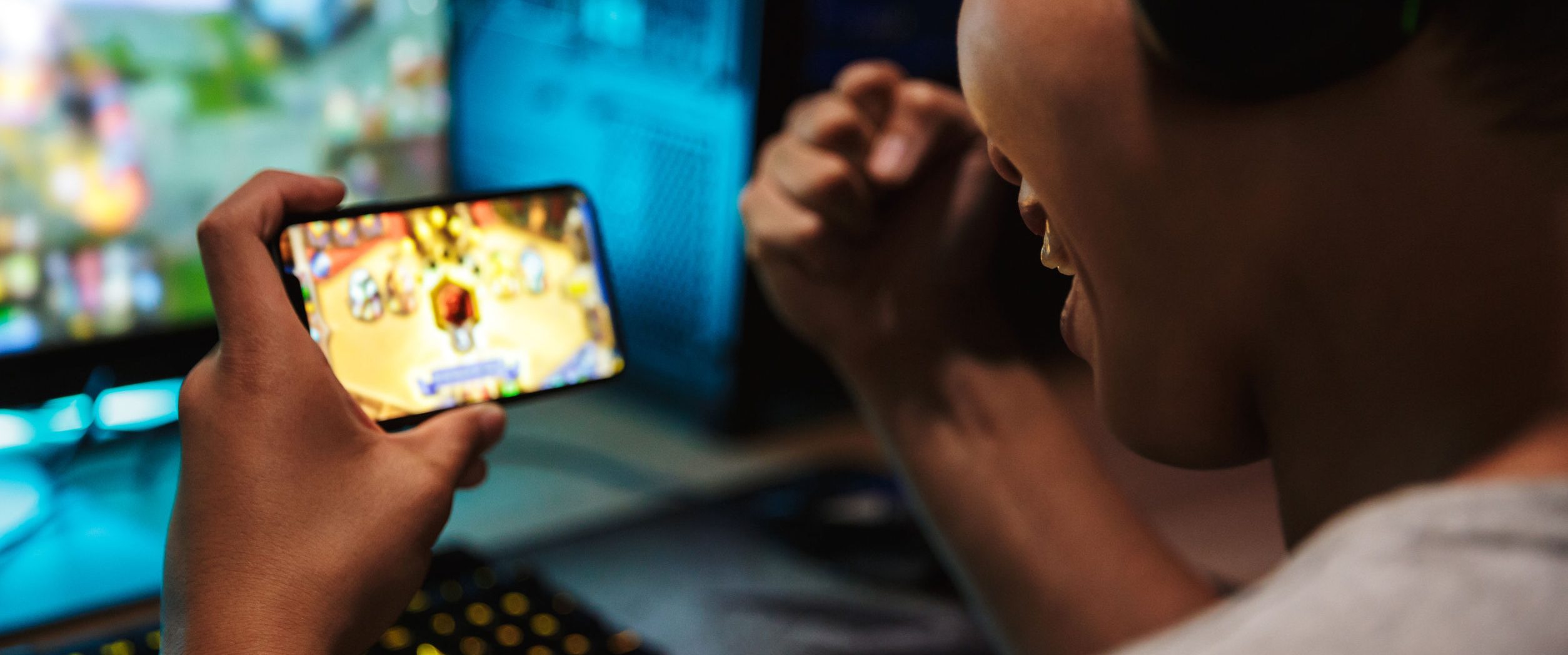TikTok Owner ByteDance Swallows A Bitter Pill in its Game Business

“Yesterday, I was working overtime during the day, and today I received a layoff notice.”
Today, the Chinese gaming industry experienced a huge impact as ByteDance’s gaming division undergoes significant adjustments. This news has left many ByteDance employees in shock.
ByteDance’s gaming division is shrinking rapidly, while competitors are swiftly snatching up their talent. From last night until now, the news of ByteDance’s gaming business adjustment has sparked heated discussions within the industry.
In fact, as early as the weekend, insiders had leaked information that ByteDance’s gaming business Nuverse would undergo a large-scale restructuring of business and personnel. All unreleased game projects will be dissolved. Regarding the employees, in addition to compensation of N+1 salary, their year-end bonuses and equity will also be calculated and compensated, ensuring that there are no underpayment
Another insider mentioned that the senior management and studio leaders were notified on Friday, and the specific arrangements will be communicated on Monday.
As of today, the dust has settled on the relevant news.
ByteDance responded to market rumors by stating that its gaming business will undergo a significant contraction. For games that are already launched and performing well, they will seek divestment while ensuring their continued operation. As for unreleased projects, except for a few innovative and technology-related ones, they will be discontinued.
Nuverse expressed that they would indeed make adjustments to business, with a stronger focus on exploring innovative games and related technologies. However, they will also ensure the continuous operation of launched products and fully safeguard players’ rights.
According to information obtained from several insiders, some employees were working overtime to meet deadlines yesterday, but were laid off today. In terms of compensation, the company’s proposed scheme is roughly in line with the rumored N+1, but some employees from the research and development department received compensation of up to N+3.
Although there were rumors beforehand, the moment when the dust settled still surprised the gaming industry.
On the social media platform Maimai, news about the large-scale contraction of ByteDance’s gaming division quickly became the trending topic. As soon as the big company laid off employees, HR departments from various major competitors have already rushed to the battlefield to recruit talent. Today, a grand drama of accommodating “broken-hearted ByteDance employees” is unfolding.
As a company with a valuation exceeding 220 billion USD, ByteDance has consistently challenged domestic internet giants in the fields of social media, e-commerce, and short videos. In recent years, they have also blown the bugle in the gaming industry.
Nuverse is the vanguard that ByteDance sounded in its attack on the gaming industry.
Since its establishment in 2019, Nuverse has been in operation for five years. It once had over 3,000 employees, with four major studios located in major cities. It included Beijing Oasis Studio, Shanghai 101 Studio, Wushuang Studio, and Hangzhou Jiangnan Studio.
As a company focused on research and development as well as publishing, Nuverse has released multiple games in recent years, such as Crystal of Atlan, Blades of The Guardians,
SNK: All-Star Fight. The company has also expanded into overseas markets with games like Ragnarok X: Next Generation and the Marvel IP card game MARVEL SNAP.
However, in the domestic market, Nuverse faces strong competition from Tencent’s Honour of Kings and Peacekeeper Elite, NetEase’s Onmyoj and Eggy Party, and miHoYo’s Genshin Impact and Honkai Impact 3rd. Breaking through in the crowded gaming market dominated by these giants is no easy task.
Until this summer, Nuverse unveiled its highly anticipated self-developed game, Crystal of Atlan, which was heavily promoted using all of ByteDance’s resources. They even enlisted the endorsement of Xuxu baby, a popular figure in the game Dungeon & Fighter. ByteDance aimed to achieve remarkable success for Crystal of Atlan through user pay and intensive marketing.
Upon its release, Crystal of Atlan topped the Apple App Store’s free game charts for five consecutive days. Industry data estimated that the game’s revenue on its first day of launch would reach 18 million RMB ($2.8 million), and it earned nearly 70 million RMB ($10.9 million) in the first week on the iOS platform alone. It remained in the top ten of the App Store’s best-selling games chart for almost a month.
The presence of ByteDance’s platform resources proved instrumental in the initial success of Crystal of Atlan. However, its amazing performance did not last long. As a game with high expectations from ByteDance, Crystal of Atlan showed weak performance in subsequent periods.
A journalist’s investigation revealed that Crystal of Atlan has dropped to 47th place on the Apple App Store’s free games chart. In comparison, Nuverse recently launched a sci-fi survival RPG game, Planet: Reboot, currently ranks 6th. Whether it will follow the same trajectory as Crystal of Atlan remains uncertain.
Angel investor Guo Tao told the Blue Whale journalist that ByteDance’s comprehensive exit from the gaming business is a complex decision-making process involving various factors such as the market, technology, and company strategy.
From a market perspective, in recent years, with the continuous expansion of the global gaming market, competition has become fierce. This is especially true in the mobile gaming sector, where new gaming companies and products are constantly emerging, intensifying the competition for market share. In this situation, ByteDance may believe that it is difficult to achieve breakthrough results by continuing to stay in the gaming industry, and therefore chooses to exit and seek other markets with more potential.
From a technological standpoint, with the continuous development of gaming technology, particularly the application of emerging technologies like virtual reality and augmented reality, the level of technology in the gaming industry is constantly improving. In this context, ByteDance may perceive that its technological breakthroughs in the gaming industry are not significant enough, and its advantages, such as the metaverse, may no longer be sufficient to support its high-level development.
Furthermore, from a corporate strategy perspective, as a diversified company, ByteDance has its own layout and development in multiple fields. In this situation, ByteDance’s exit from the gaming business may be a means to better concentrate resources and efforts on other business areas with greater development potential.
Despite heavy investment in research and development and extensive traffic support, the results obtained clearly did not meet ByteDance’s expectations. This has led the higher-ups to lose patience with the gaming business. Although the specific reasons for this business adjustment have not been disclosed officially, it is evident that ByteDance cannot provide unlimited traffic support to the gaming business, and abandonment may be only a matter of time.
In fact, this is not the first time that ByteDance’s gaming business has undergone downsizing. As early as June of last year, ByteDance made significant adjustments to its gaming business. Shanghai’s 101 Studio was the main focus of the restructuring, and the other three studios primarily focused on overseas projects undergoing smaller-scale business adjustments.
According to insiders of ByteDance, the decision to shrink its gaming business was extensively discussed by Yan Shou, the head of ByteDance’s gaming division, and Liang Rubo, the CEO of ByteDance. Liang Rubo believed that the gaming business had achieved certain accomplishments. However, in recent years, ByteDance’s gaming projects pursued a “bigger is better” approach, lacking focus and resulting in resource dispersion. He thought that the company should redirect its energy and resources towards more foundational, innovative, and imaginative projects.
For ByteDance, scaling back its gaming business is undoubtedly a difficult decision, but it also demonstrates the company’s determination to make tough choices.
Yuan Shuai, the Deputy Secretary-General of the Zhongguancun Internet of Things Industry Alliance, said the gaming market is becoming increasingly competitive. ByteDance needs to continuously adjust its strategies to respond to market changes. ByteDance has gone through multiple attempts and explorations in the gaming field, involving various types and platforms. Through this business contraction, the company is more focused on innovative and promising gaming projects and related technologies. It will concentrate its energy and resources on core businesses and more promising areas to enhance competitiveness and market share.
It is worth noting that in recent years, ByteDance’s strategy of aggressively launching new products in various fields has proven ineffective.
Not long ago, PICO, ByteDance’s VR business department, also faced layoffs. PICO responded on its Weibo that there would be a short-term reduction in investment and team size, affecting over 300 employees, accounting for approximately 23% of the workforce.
From the education business two years ago to the current focus on smart hardware and gaming business, ByteDance has continually positioned itself in new businesses around hot trends, seeking new growth points. However, many of these ventures have faced difficulties after initial hype and eventually became abandoned projects.
But for ByteDance, such trials and errors can be seen as blessings rather than setbacks. As an internet giant with a valuation exceeding $220 billion, ByteDance needs to search for new growth points through these “abandoned projects”.
Just when the outside world was lamenting the downsizing of ByteDance’s gaming business, news of the establishment of a new department called “Flow” focused on AI innovation business once again made headlines. Perhaps for ByteDance, each trial and error is not an endpoint but the starting point of another new business.





